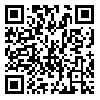Pajouhan Scientific Journal, Winter, In Press
Back to the articles list |
Back to browse issues page
1- Department of Nursing, Islamic Azad University, Astara Branch, Astara, Gilan, Iran
2- Department of Midwifery and Reproductive Health, Community Health Research Center, Isfahan (Khorasgan) Branch, Islamic Azad University, Isfahan, Iran ,mousavi1315@gmail.com
3- Department of Nursing, Community Health Research Center, Isfahan (Khorasgan) Branch, Islamic Azad University, Isfahan, Iran
2- Department of Midwifery and Reproductive Health, Community Health Research Center, Isfahan (Khorasgan) Branch, Islamic Azad University, Isfahan, Iran ,
3- Department of Nursing, Community Health Research Center, Isfahan (Khorasgan) Branch, Islamic Azad University, Isfahan, Iran
Abstract: (222 Views)
Background and Objectives: Understanding the role of emotional maturity in the self-management ability of adolescents with type 2 diabetes leads to optimal health management and improved quality of life. The present study aimed to determine the relationship between emotional maturity and self-management among adolescents with type 2 diabetes.
Materials and Methods: In this descriptive-correlational study, 130 adolescents with type 2 diabetes were recruited from Tehran Diabetes Clinic through simple random sampling. The required data were collected using a demographic characteristic form, the Emotional Maturity Scale (Yashvir Singh and Bhargava), and the Diabetes Self-Management Questionnaire (Schmitt). Data analysis was performed using Pearson’s correlation, independent t-tests, Kruskal-Wallis tests, and multiple regression analysis via SPSS software (version 26).
Results: There was a direct and significant correlation between emotional maturity and diabetes self-management among adolescents with type 2 diabetes (P<0.001, r=0.361). The dimensions of emotional maturity, including emotional instability, emotional regression, and personality disintegration, were significantly associated with self-management (P<0.001). Male adolescents gained higher scores in diabetes self-management, compared to females (P=0.015), and there was an inverse and significant relationship between age and diabetes self-management (P=0.005). The multiple regression model showed that emotional maturity, gender, and age explained 24% of the variance in diabetes self-management (P<0.001).
Conclusion: Emotional maturity, gender, and age are important in improving the self-management of adolescents with type 2 diabetes. Intervention and educational programs aimed at promoting the emotional maturity of adolescents, especially females, should be designed and implemented to improve their diabetes self-management and quality of life.
Materials and Methods: In this descriptive-correlational study, 130 adolescents with type 2 diabetes were recruited from Tehran Diabetes Clinic through simple random sampling. The required data were collected using a demographic characteristic form, the Emotional Maturity Scale (Yashvir Singh and Bhargava), and the Diabetes Self-Management Questionnaire (Schmitt). Data analysis was performed using Pearson’s correlation, independent t-tests, Kruskal-Wallis tests, and multiple regression analysis via SPSS software (version 26).
Results: There was a direct and significant correlation between emotional maturity and diabetes self-management among adolescents with type 2 diabetes (P<0.001, r=0.361). The dimensions of emotional maturity, including emotional instability, emotional regression, and personality disintegration, were significantly associated with self-management (P<0.001). Male adolescents gained higher scores in diabetes self-management, compared to females (P=0.015), and there was an inverse and significant relationship between age and diabetes self-management (P=0.005). The multiple regression model showed that emotional maturity, gender, and age explained 24% of the variance in diabetes self-management (P<0.001).
Conclusion: Emotional maturity, gender, and age are important in improving the self-management of adolescents with type 2 diabetes. Intervention and educational programs aimed at promoting the emotional maturity of adolescents, especially females, should be designed and implemented to improve their diabetes self-management and quality of life.
Type of Study: Research Article |
Subject:
Medicine & Clinical Sciences
Received: 2024/10/29 | Accepted: 2025/01/13
Received: 2024/10/29 | Accepted: 2025/01/13
Send email to the article author
| Rights and permissions | |
 |
This work is licensed under a Creative Commons Attribution-NonCommercial 4.0 International License. |






